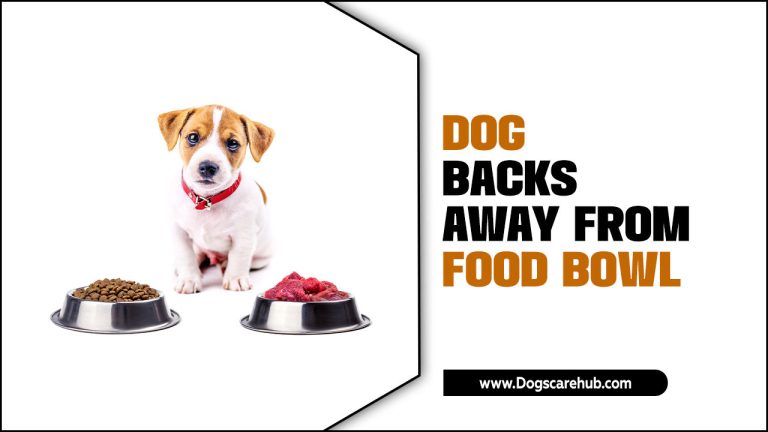
When a dog backs away from food bowl, it could indicate various underlying issues. One possible reason is that the dog is experiencing discomfort or pain while eating, such as dental problems or an upset stomach.
Another possibility is that the dog has developed an aversion to the specific type of food offered due to a negative experience or a change in preferences. Here we will discuss in detail the 7 reasons why your dog may be showing this behavior and what you can do to help them overcome their fear. We will also cover when it is appropriate to seek professional help for your furry friend.
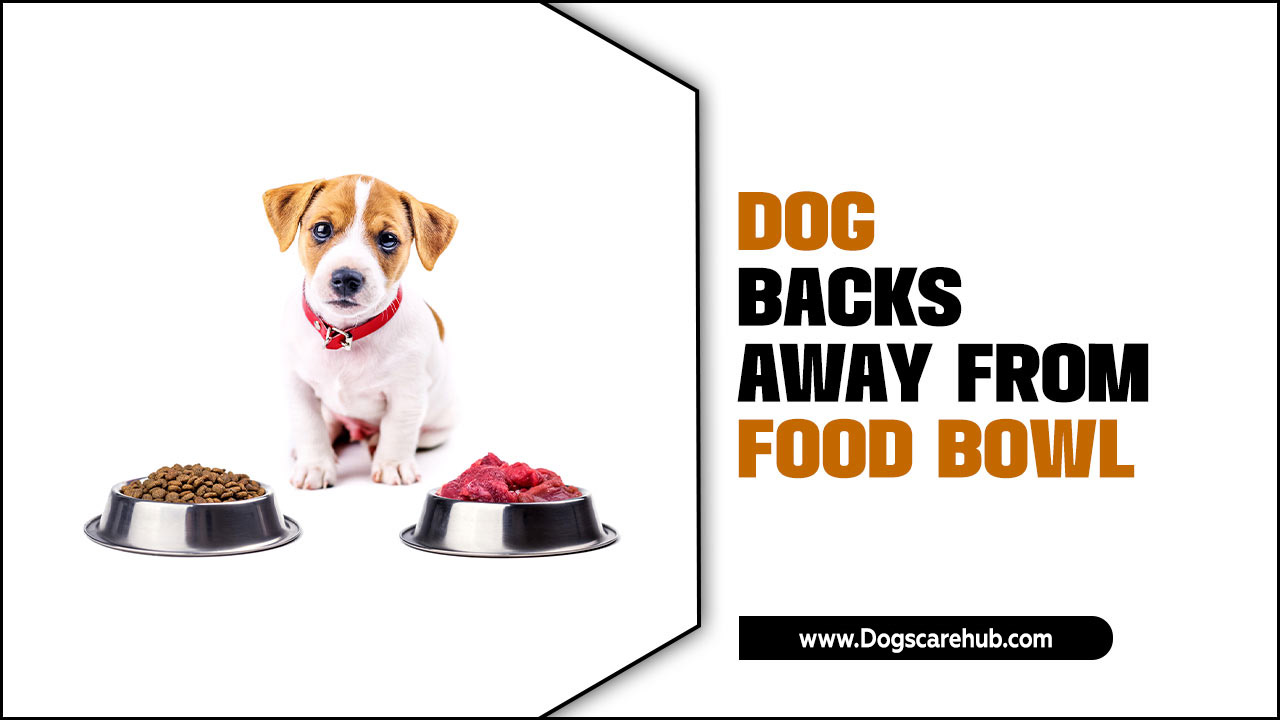
7 Reasons Your Dog Backs Away From Food Bowl
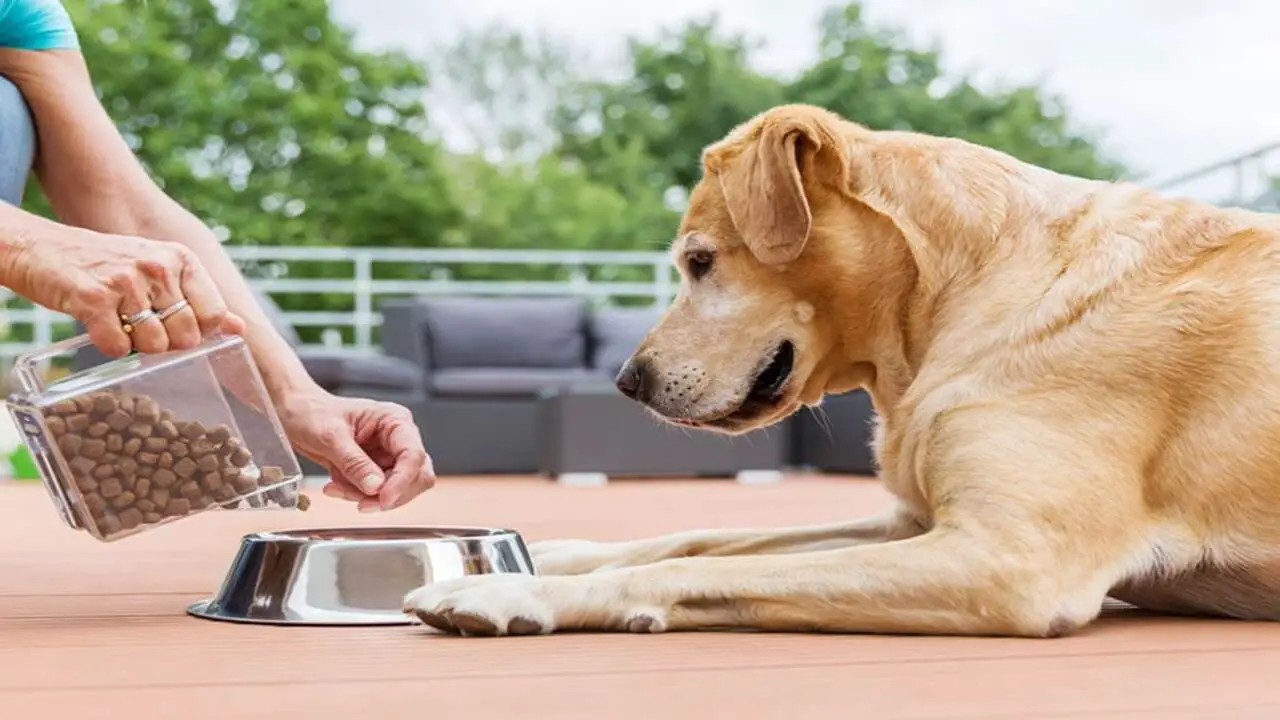
There are several reasons why your dog may back away from their food bowl. One possible reason is fear of unfamiliar objects or people. This fear can make them hesitant to approach their food bowl. Another reason could be separation anxiety, which may cause your dog to feel uncomfortable eating alone. Lack of trust in their surroundings or previous traumatic experiences can also lead to fear around the food bowl.
Fear of punishment or hunger can make your dog wary of approaching their food bowl. Additionally, sensitivity to being dirty or wet may cause your dog to avoid the food bowl. It’s important for dog owners to understand these reasons and address them accordingly, as avoiding the food bowl can negatively impact their nutrition and health. Here are 7 steps for dog backs away from food bowl.
Fear Of Unfamiliar Objects Or People
When a dog backs away from their food bowl, it may be due to a fear of unfamiliar objects or people in the surrounding area. Some dogs are sensitive to loud noises or sudden movements, making them feel frightened while eating.
Additionally, medical issues such as dental pain or discomfort can make a dog hesitant to eat from their bowl. However, training and positive reinforcement can help address fear-based behavior and encourage a dog to feel more comfortable during meal times. It’s important to provide a quiet and calm environment to reduce anxiety and promote healthy eating habits for your furry friend.
Fear Of Being Left Alone
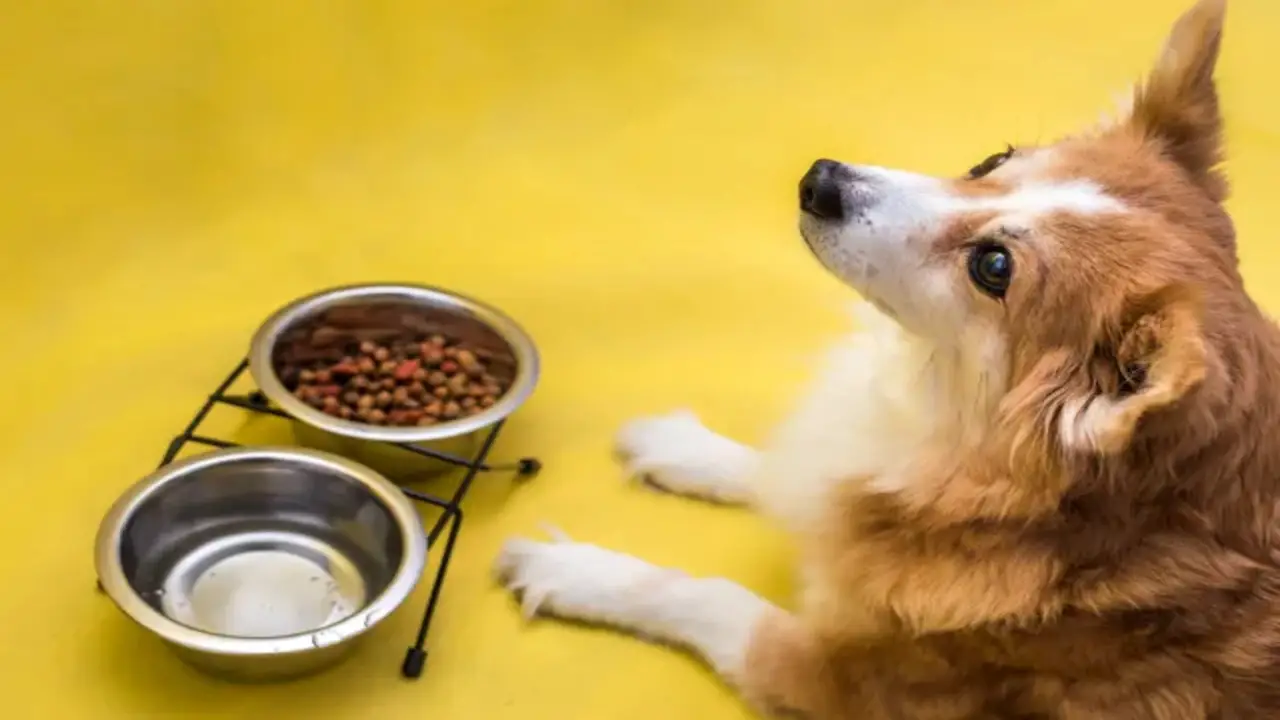
Being left alone can be a source of fear and anxiety for dogs, which can manifest itself around their food bowl. Separation anxiety is often the culprit behind this behavior, causing dogs to associate their food bowl with negative emotions.
Other factors can be at play, such as past trauma or medical issues, that lead dogs to back away from their food bowl. Establishing a regular feeding routine and using positive reinforcement can help alleviate this fear. Additionally, consulting with a veterinarian or animal behaviorist can provide further insight and solutions to this common problem.
Fear Of Punishment Or Hunger
Some dogs may exhibit the behavior of backing away from their food bowl out of fear of punishment or hunger. This could result from previous negative experiences or training methods that have instilled fear in them. Additionally, hunger can play a role in this behavior as well. Some dogs may become overwhelmed with excitement and anxiety when presented with food, causing them to retreat instead of approaching their bowl.
If this behavior persists, observing your dog’s behavior and consulting with a veterinarian or animal behaviorist is important. They can provide further insight and guidance on addressing any underlying issues and creating a calm and stress-free environment during mealtime. Addressing the fear of punishment or hunger can help your dog feel more comfortable and confident while eating.
Fear Of Being Dirty Or Wet
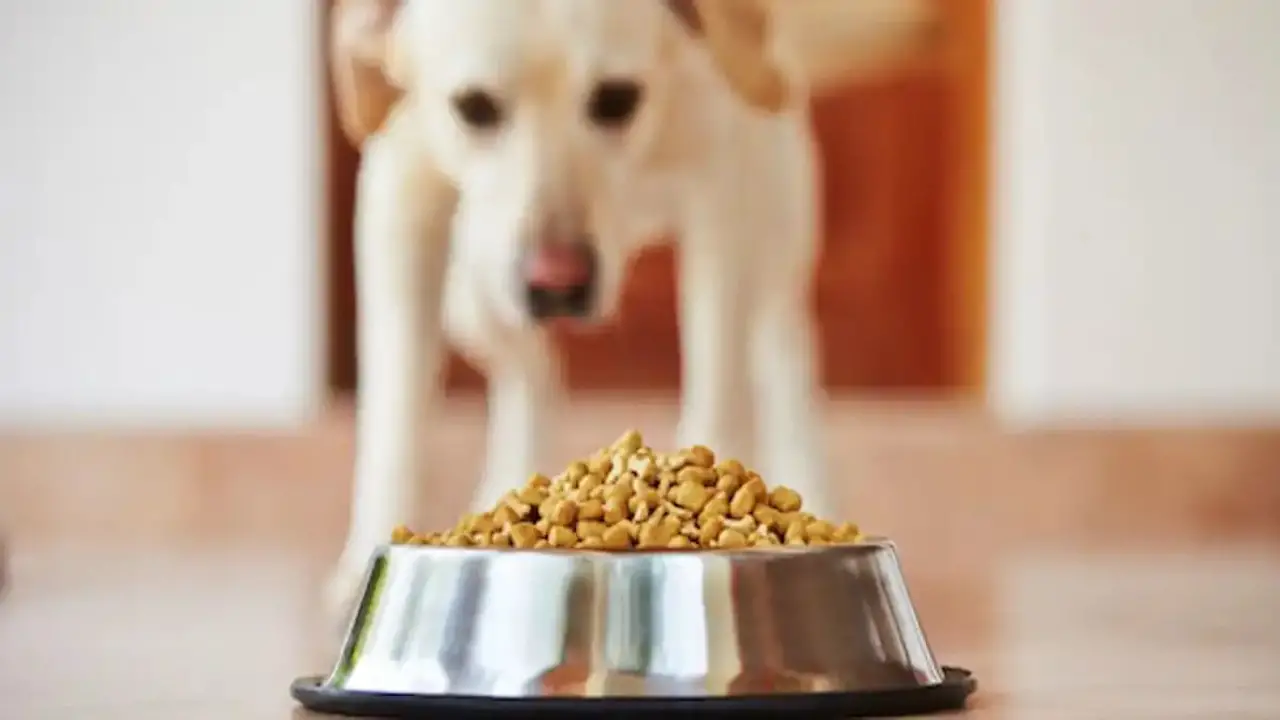
Sometimes, dogs may exhibit unusual behavior around their food bowl due to a fear of being dirty or wet. This fear can stem from negative experiences where the dog associates the food bowl with being wet or dirty. It’s not uncommon for some dogs to avoid their food bowl if they are wet or if the bowl itself is dirty.
Additionally, some dogs may fear their own scent, which can cause them to avoid their food bowl altogether. They may instinctively try to distance themselves from any odors, including their own.
Separation Anxiety
Separation anxiety can be a common problem that may cause a dog to retreat from their food bowl. This behavior stems from the dog associating the food bowl with being left alone. However, it is important to consider other potential causes as well. Dogs may also retreat from their food bowl due to medical issues or discomfort.
Consulting with a veterinarian can help rule out any underlying health problems; further testing may be necessary. To address separation anxiety, gradual desensitization and positive reinforcement training are recommended. Creating a calm and secure environment during mealtime can also help alleviate anxiety. By taking these steps, dog owners can help their pooch feel more comfortable and relaxed around their food bowls.
Lack Of Trust
A lack of trust can be a significant factor when it comes to dogs backing away from their food bowl. Dogs may feel threatened or insecure in their environment, causing them to avoid their food bowl. Negative experiences in the past, such as being scolded while eating, can also contribute to this lack of trust. Additionally, health issues like dental problems or pain could make a dog reluctant to eat.
Environmental factors, including noise or distractions, may make a dog uneasy during mealtime. To address this issue, offering positive reinforcement and creating a calm, positive environment can help build trust with your dog. This, in turn, can alleviate anxiety related to the food bowl.
Fear Of Getting Sick
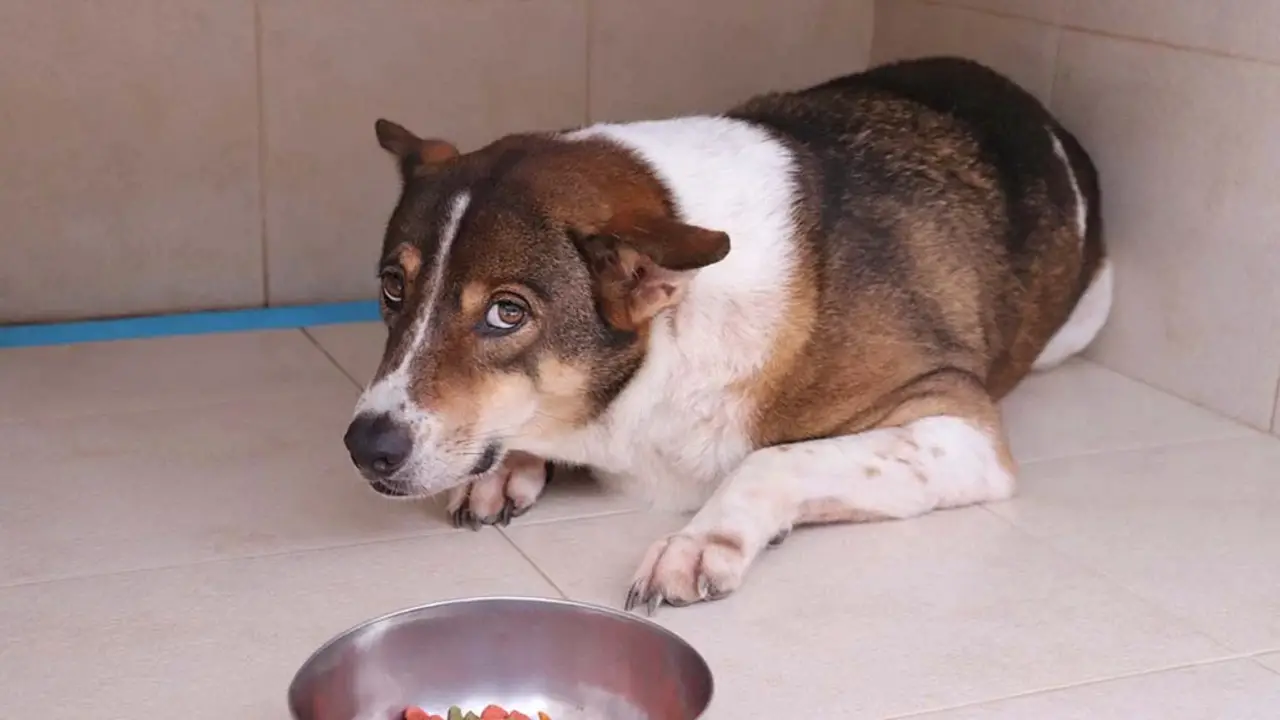
Some dogs may fear or hesitate when approaching their food bowl due to fear of getting sick. This can be caused by a previous negative experience with food or a sudden change in their diet. Additionally, dental pain or discomfort could also contribute to this behavior.
If your dog consistently refuses to eat or shows signs of discomfort while eating, it’s important to take them to the vet for further testing and evaluation. Positive reinforcement and gradual desensitization techniques can be effective in helping dogs overcome their fear and build confidence in their food. Addressing any underlying health issues and providing a supportive environment can help your furry friend regain their appetite and maintain a healthy relationship with their food.
What To Do If Your Dog Is Afraid Of Eating Out Of Their Food Bowl
If your dog is exhibiting fear or anxiety when approaching their food bowl, it’s essential to address the issue promptly. Understanding the root cause of their behavior is the first step in finding a solution. Several factors could contribute to this fear, including past trauma, health problems, or a sudden change in their eating environment.
Try implementing different feeding techniques to help your furry friend overcome their fear. Hand-feeding or using a different type of bowl, like ceramic or stainless steel, can make a difference. Additionally, feeding your dog in a new location or gradually desensitizing them to their food bowl may help alleviate their anxiety. If the problem persists, it’s advisable to seek assistance from a veterinarian or certified dog behaviorist. Remember patience and understanding are crucial during this process.
When To Seek Professional Help For A Dog Afraid Of Their Food Bowl
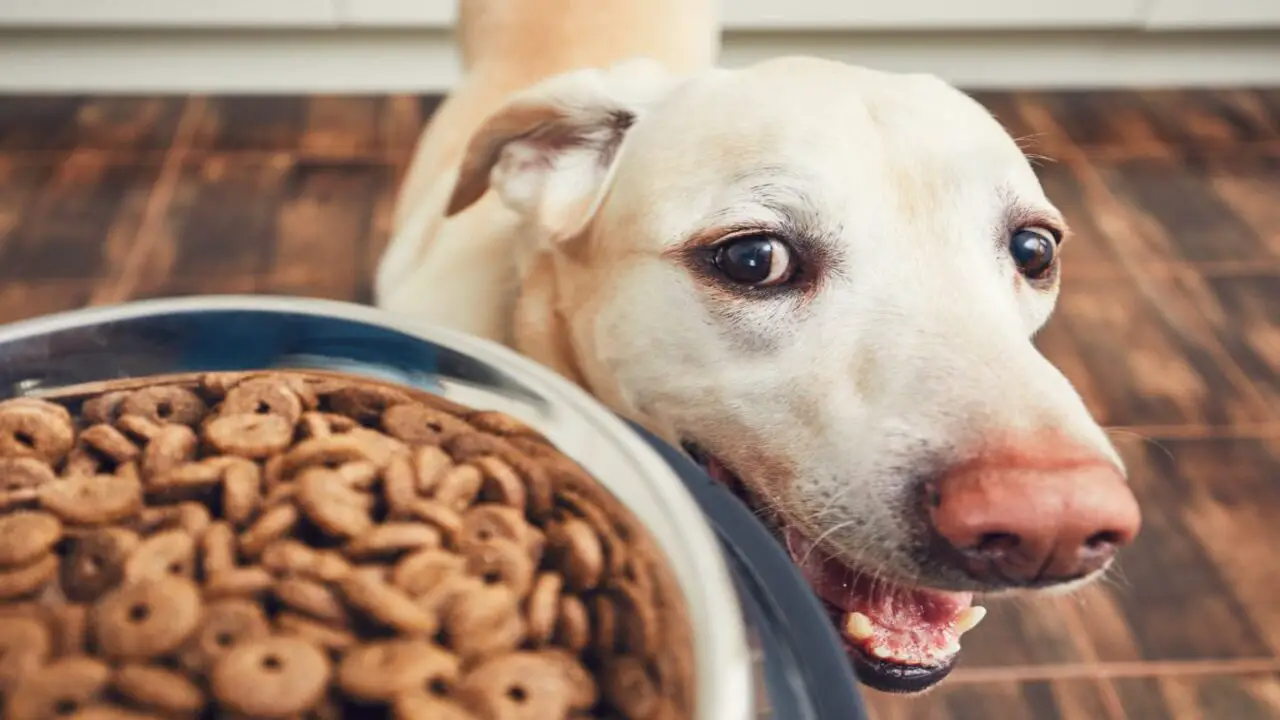
If your dog continues to exhibit fear or avoidance behavior around their food bowl despite your efforts to address the issue, it may be time to seek professional help. A certified dog behaviorist or veterinarian can provide valuable insights and guidance in resolving this common problem.
Professional intervention is especially necessary if other concerning behaviors or health problems accompany your dog’s fear of their food bowl. They can conduct further testing to rule out any underlying medical conditions contributing to the behavior. For example, dental pain or allergies could cause discomfort while eating.
Additionally, a professional can holistically assess your dog’s behavior and consider any past traumas or psychological factors contributing to their fear. They can develop a tailored treatment plan, incorporating techniques such as desensitization and positive reinforcement, to help your dog overcome their fear and regain confidence in their food.
Conclusion
If your dog backs away from food bowl, it is important to understand the underlying reasons behind their behavior. It could be due to fear of unfamiliar objects or people, fear of being left alone, fear of punishment or hunger, fear of being dirty or wet, separation anxiety, lack of trust, or fear of getting sick.
To address this issue, create a positive and safe environment for your dog during mealtime. Gradually introduce new objects or people, provide reassurance and support, and consult with a professional if needed. Understanding and addressing your dog’s fears can help them establish a healthy and comfortable relationship with their food bowl.
Frequently Asked Questions
1.Why Does My Dog Back Away From Her Food Bowl?
Ans: There can be several reasons your dog backs away from her food bowl. It could be due to pain or discomfort while eating, anxiety or stress about their food bowl, negative past experiences, or a combination of factors.
2.Why Is My Dog Suddenly Scared To Eat?
Ans: There are various reasons why your dog might suddenly be scared to eat. It could be due to a traumatic incident while eating or near the food bowl or health issues like dental problems or gastrointestinal discomfort. To address these concerns, consult your veterinarian for medical and behavioral evaluation.
3.Why Will My Dog Eat From My Hand But Not His Bowl?
Ans: There could be several reasons your dog prefers eating from your hand instead of his bowl. It’s possible that he has a negative association with the bowl, such as pain or discomfort while eating. Eating from your hand may make him feel more secure and comfortable.
4.Why Is My Dog Acting Weird Around His Food?
Ans: There can be several reasons why your dog is acting strangely around their food. It could be due to pain or discomfort while eating, anxiety or stress, resource-guarding behavior, or other underlying issues. Consulting with a veterinarian or professional dog trainer can help identify the cause and find solutions.
5.Why Is My Dog Avoiding His Food Bowl?
Ans: There can be several reasons why your dog is avoiding his food bowl. It could be due to dental issues, stomach problems, or anxiety. The bowl might be causing discomfort, or the food may have gone bad. Observe your dog’s behavior and consult a veterinarian to determine the cause.
Meet Elyse Colburn, the devoted canine companion and storyteller behind the enchanting world of “Tales, Tails, and Adventures Unleashed.” A passionate dog enthusiast with a heart full of paw prints, Elyse Colburn shares heartwarming tales and insightful adventures, celebrating the joy, loyalty, and endless antics that make every dog a true hero. Join Elyse Colburn on this tail-wagging journey, where every post is a love letter to our four-legged friends.